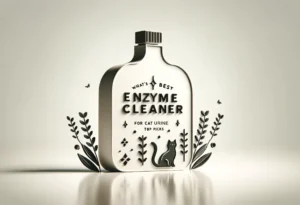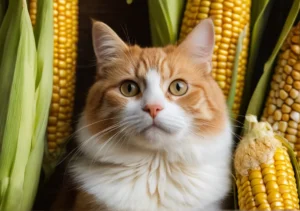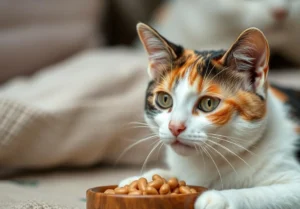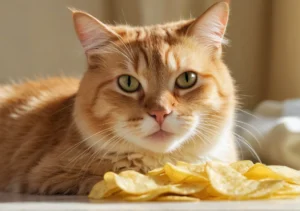Cats are fascinating creatures with unique dietary needs, but there are certain foods that should never be on their menu. Avocado, for example, is a popular fruit that can be harmful to our feline friends. But why can’t cats eat avocado?
Cats lack the necessary enzymes to properly digest avocado, leading to potential health risks if consumed. Here’s a breakdown of why avocado is not a safe choice for your feline companion:
The Toxic Component of Avocado
Avocados are a delicious and healthy fruit for humans, but they contain a substance that can be harmful to our feline friends. The toxic component in avocados is called persin. This natural fungicidal toxin is found in the leaves, bark, skin, and pit of the avocado. While persin is generally safe for humans, it can be extremely dangerous for cats.
If a cat were to ingest persin by eating an avocado, it can lead to various health issues. Symptoms of avocado toxicity in cats may include vomiting, diarrhea, difficulty breathing, and fluid accumulation in the chest. In severe cases, it can even be fatal.
Risks of Avocado Consumption for Cats
It is crucial for cat owners to be aware of the risks associated with allowing their feline companions to consume avocados. While not all cats will have a severe reaction to persin, it’s better to be safe than sorry. If you suspect that your cat has eaten avocado and is displaying any unusual symptoms, it’s important to seek veterinary care immediately.
In the event of avocado ingestion, your veterinarian may recommend laboratory tests to assess your cat’s condition. Treatment for avocado toxicity in cats may include supportive care such as fluid therapy and medication to alleviate symptoms. Prevention is key, so make sure to keep avocados out of reach of your curious feline companions to avoid any potential health risks.
Remember, while avocados are a nutrient-rich food for humans, they should never be a part of a cat’s diet. By understanding the toxicity of avocados and the associated risks for cats, you can help keep your feline friends safe and healthy.
Safe Alternatives for Cats
While cats can’t eat avocado, there are plenty of safe and nutritious alternatives you can offer your feline friend. Instead of avocado, consider giving your cat cooked lean meat like chicken or turkey. These meats are high in protein and can be a healthy snack for your cat. Another option is cooked eggs, which are also a good source of protein. Just make sure they are fully cooked to avoid any potential health risks. If you’re looking for plant-based alternatives, steamed broccoli or cooked pumpkin are safe options for cats. These vegetables provide essential nutrients and fiber that can benefit your cat’s digestive system. It’s important to remember that treats should only make up a small portion of your cat’s diet. The majority of their nutrition should come from a balanced cat food that meets their specific dietary needs. Always consult with your veterinarian before making any significant changes to your cat’s diet.
Understanding Feline Digestive System
Cats have a unique digestive system that differs from humans, making certain foods, like avocado, harmful to them. While avocados are nutritious for humans, they contain a substance called persin that is toxic to cats. Cats lack certain enzymes needed to break down persin, leading to digestive and health issues if they consume avocado. Additionally, cats are obligate carnivores, meaning their diet must primarily consist of animal-based proteins. Foods like avocado, which are high in fat and not easily digestible for cats, can cause gastrointestinal upset, pancreatitis, or even more severe reactions. Understanding your cat’s unique nutritional needs and the differences in their digestive system will help you make informed decisions when choosing foods for them. Always prioritize your cat’s health and well-being by sticking to a diet that is tailored to their specific dietary requirements.
Avocado in Cat Food Products
Believe it or not, some cat food products contain avocado as an ingredient. While avocados are safe for humans, they are not suitable for our feline friends. Cats lack the necessary enzymes to digest avocado properly, which can lead to serious health issues. So, when scanning the ingredients list on cat food labels, make sure avocado isn’t on there to keep your furry companion safe.
Signs of Avocado Poisoning in Cats
Curious about how to tell if your cat has eaten avocado and is experiencing poisoning? Symptoms to watch out for include vomiting, diarrhea, difficulty breathing, and even heart failure. If you suspect your cat has ingested avocado and is showing any of these signs, rush to the vet immediately. Remember, it’s always better to be safe than sorry when it comes to your pet’s health.
- Excessive thirst
- Lack of appetite
- Abdominal pain
- Constipation
- Inability to urinate
Remember, prevention is key when it comes to keeping your cat safe from avocado poisoning. Stay vigilant and keep this toxic fruit out of your kitty’s reach. Your furry friend will thank you for it!
Why Cats Can’t Eat Avocado
Cats cannot eat avocado due to a substance called persin found in avocados. This natural fungicidal toxin is harmless to humans but can be toxic to cats, causing vomiting, diarrhea, and potential difficulty breathing. As obligate carnivores, cats have specific dietary needs that don’t align with the components of avocado, making it unsafe for feline consumption.
How to Keep Avocado Away from Cats
To prevent curious kitties from getting a taste of avocado, it’s essential to safely store this fruit. Keep avocado securely wrapped and stored in a closed container or inside the refrigerator. Ensure that any avocado seeds are disposed of properly, as they can also pose a choking hazard to pets. Always be cautious when preparing food containing avocado, and clean up thoroughly to avoid any accidental ingestion by your feline friend.
Fun Fact About Avocado and Cats
Did you know that while avocados are off-limits for cats, they can still enjoy other tasty treats like cooked fish, cooked eggs, or plain cooked chicken in moderation? Keep your cat’s diet exciting and nutritious by exploring cat-safe foods that cater to their carnivorous nature. Remember, always consult with your veterinarian before introducing any new foods into your cat’s diet for their optimal health and well-being.
Alex, a passionate animal lover, has experience in training and understanding animal behavior. As a proud pet parent to two dogs and three cats, he founded AnimalReport.net to share insights from animal experts and expand his knowledge of the animal kingdom.




